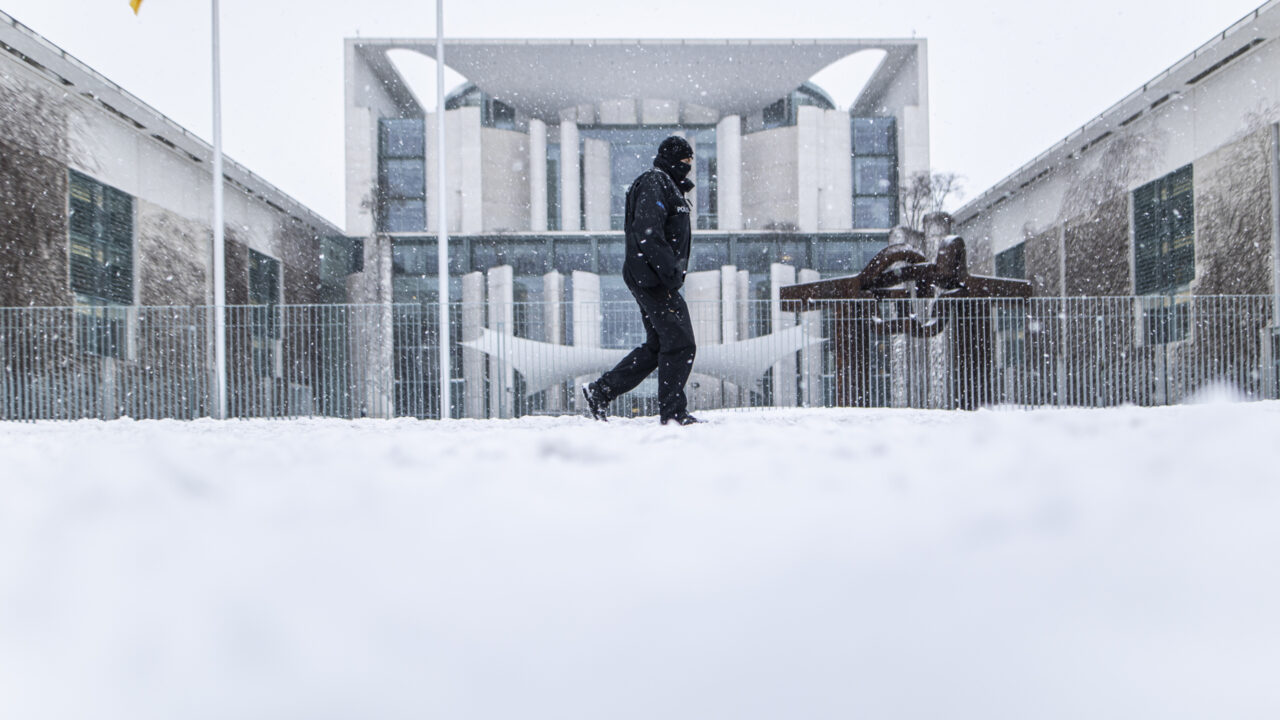The cold man of Europe: Germany’s energy emergency
Decades of wilfully blind dependence on Russian gas have left Germany facing a bleak winter. German leaders could now have an opportunity to begin repairing the damage
Come winter, Germany could be the cold man of Europe. In a throwback to the European debt crisis of the early 2010s, Brussels could even create a ‘troika’ of technical experts to supervise Germany’s energy policy – only this time one comprising the European Commission, the European Investment Bank, and the International Energy Agency. Such a scenario may be hard to imagine, but it is no less extreme than the collapse of German energy policy that is now occurring.
Last week, the European Commission responded to the energy emergency by presenting a proposal to reduce EU gas demand by 15 per cent compared to pre-crisis levels, to prepare for further disruption of gas deliveries from Russia. The government in Madrid was quick to aim a jab at Berlin – stating that, “unlike other countries, we Spaniards have not lived beyond our means from an energy point of view.” This was, of course, a reference to the debt crisis. Back then, German politicians regularly accused Greeks and other southern Europeans of living beyond their means, lecturing them on the need to “tighten their belts” as the European Union – pushed by Berlin’s fiscal hawks – imposed biting austerity measures in exchange for financial solidarity.
Now it is Germany’s turn in the doghouse. Decades of naivety, incompetence, and greed led German policymakers to progressively deepen the country’s dependence on Russian natural gas. And Berlin long considered Moscow a reliable supplier, despite mounting evidence to the contrary. For example, in 1990, the Kremlin cut oil deliveries to Lithuania in an attempt to coerce the newly independent Baltic republic back into the Soviet Union. Ukraine has repeatedly experienced Russian energy blackmail since 1991 – whenever it departed from the Kremlin line too much.
For Russian President Vladimir Putin, the current approach maximises coercive leverage over Germany while ensuring continued revenues from gas exports
This is precisely why German leaders sought to circumvent third countries in importing gas from Russia, hoping to stabilise supplies. The Nord Stream projects – two pipelines linking Russian supply to German demand via the Baltic Sea – are products of this strategy. Germany’s allies and partners warned Berlin that its approach would make Germany, and by extension the entire EU, more vulnerable to Russian coercion. But German industry was just too hungry for cheap fossil fuels. In turn, Germany’s use of natural gas for power generation increased from 20.3 gigawatts to 30.5 gigawatts between 2002 and 2021. By early 2022, imports from Russia accounted for 55 per cent of that gas.
For Russian President Vladimir Putin, the current approach maximises coercive leverage over Germany while ensuring continued revenues from gas exports. Rumours from Gazprom about the functioning of this or that compressor turbine keep Germans occupied with the discomfort of uncertainty while discouraging them from standing up to the Kremlin.
Meanwhile, Germany’s gas reserves are insufficient to last through a particularly long or cold winter. As a consequence, Berlin could soon enforce mandatory cuts to household and industry gas consumption. In a gaff she quickly regretted, German Foreign Minister Annalena Baerbock recently warned that there would be “popular uprisings” if Russia halted its gas deliveries. Some business leaders fear that Germany faces “deindustrialization”. Yet it is hard to predict how ordinary Germans will actually respond: more than half of them want to maintain the supply of weapons to Ukraine despite rising energy prices. With the right leadership in Berlin, Putin’s energy war might even harden their resolve.
Russia is now dangling the prospect of a functioning Nord Stream 2 before anxious Germans as the solution to their troubles. Berlin only suspended the certification process for the pipeline shortly before 24 February 2022, when Russia launched its full-scale invasion of Ukraine.
German Economy Minister Robert Habeck sees through the Kremlin’s attempts to exert reflexive control: “Putin uses the tools he has at his disposal … he has gas”. A complete cut-off of Russian gas exports to Germany is unlikely, as Putin’s strategy depends on uncertainty and conditionality – making the target believe it has some influence over its fortunes when really it does not. However, at some point, the political and economic costs of uncertainty will exceed the costs of a gas embargo. Germany has likely reached that point.
Habeck and his EU counterparts agreed on Tuesday to the demand-reduction proposal, accepting revisions that gave member states the final say over any emergency measures. They committed to use less gas now and build up their reserves to help withstand Russian energy coercion when the temperature drops and demand for heating goes up. Berlin should recognise and appreciate this as an act of solidarity, given that Germany’s vulnerability is homemade.
Other Europeans’ solidarity obliges Germans to hold their leaders accountable for this failure of historic proportions. And it should push the German government to do more to defeat Russia in Ukraine and accelerate the green transition towards a more sovereign EU.
The European Council on Foreign Relations does not take collective positions. ECFR publications only represent the views of their individual authors.



